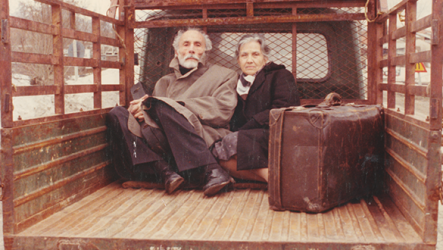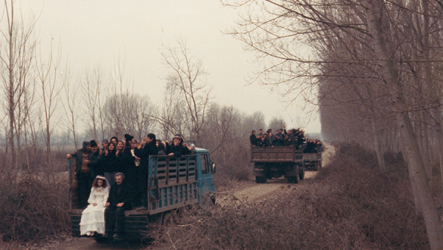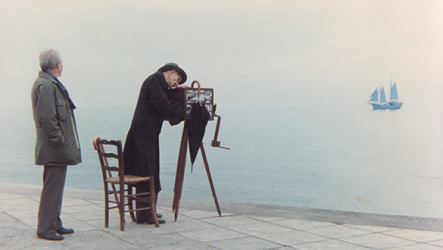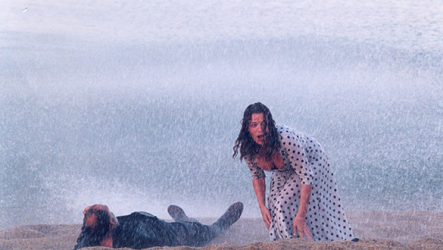Ten years after Theo Angelopoulos’s accidental death during the shooting of his film The other sea, we feel compelled, in the context of the 12th AAGFF, to present a tribute to his oeuvre as well as organizing a round table with Greek and foreign scholars and film directors, who have either worked with him or have written extensively on his cinematic legacy. Angelopoulos was an internationally acclaimed auteur with a distinct personal style. Drawing inspiration from Brecht, in his first films he aspired to redeem the defeated in the Greek civil war and in his later films more generally to expose the plight of the immigrants and the dispossessed in the Balkans.
History becomes the canvas for Angelopoulos’s cinematic poetry in his first trilogy, “the trilogy of history”, which is more attuned with materialist realism prioritizing the collective. In the end of this trilogy, and at a crossroads towards more elaborate international projects, Alexander the Great (O Megalexandros) (1980) is a majestic byzantine symphony, in which undertones of primitive rebellion are related with the failure of the Greek state to live up to the promises of modernism incorporated in the revolutionary project of 1821. The film Voyage to Cythera focuses on the motives behind the voyage and signifies the fluidity in the formation of political identity. Thus Angelopoulos set up modernist texts in which spectators are summoned to become producers of new interpretations of history, yet within the framework of the grand meta-narrative of Marxism.
In his penultimate trilogy, “the trilogy of the borders” (The suspended step of the stork, Ulysses' gaze and An eternity and a day) he abandons the Brechtian devices and materialist realism, which were the landmarks of his first trilogy, and prioritized auteurist choices “in a constant self-reflexivity and exterior cultural preferentiality”. However he sustained the plan-sequence and slow extended camera movements as major devices for continuing his historical project, along with a lyrical sense of the relation between landscape and cinema and by mixing the personal and the local with the fading grand historical narratives. His later films predicted the rise of neoliberalism and world capitalism, which led to repeated Greek and European crises. His films are imbued with a sense of the tragedy that haunts Europe and which, in contrast to the euphoria of the "end of history", mark its constant presence.
Film selection, introduction: Maria Komninos
Programming: Jacob Skenderidis







